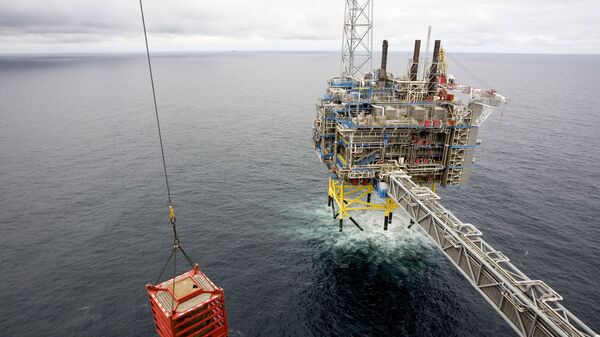A decision by the European Investment Bank (EIB) to stop financing fossil energy after 2021 has sparked apprehension in Norway. The ban has been predicted to undermine Norway's gas output that, as put by Norwegian broadcaster NRK, could potentially “save Europe from coal”.
In a bid to become the world's first “climate bank”, the European Union's lending arm has decided to phase out its multibillion-euro financing for fossil fuel projects. Since 2013, the EIB has funded €13.4 billion ($14.8 billion) in fossil fuel projects.
The decision to bring its funding into accordance with the Paris Agreement comes after European Commission President Ursula von der Leyen pledged to legislate the goal of reaching carbon neutrality by 2050.
This development sparked unease in Norway, one of the world's leading exporters of oil and gas, whose main market is just the EU at 95 percent of the total exports, with Germany, France and, the UK being the top consumers.
“The question is how much Norwegian gas Europe will need in the future, when European power stations are forced to lower their emissions? That's what matters, since we send almost all of our gas there”, Nordea chief analyst Thina Saltvedt told NRK.
While the EIB's decision is estimated to affect power stations rather than gas extractors per se, experts predict it will still increase the climate pressure on Norwegian gas.
“The EIB's decision will make it difficult to borrow money for gas projects, and represents a major strategic challenge for gas companies”, Nicholas Browne, research director for global energy at consulting firm Wood Mackenzie, said.
Iskander Erzini Vernoit of the climate think tank E3G went so far as to predict the end days for the gas industry.
“This means an end for power plants that use non-purified Norwegian gas that has not been purified with, say, carbon capture and storage. One of the most important conclusions we can draw from the EIB's decision is that gas power is increasingly viewed as risky to invest in”, he said.
So far, Norway's vast oil and gas industry, which accounts for over 60 percent percent of the country's total exports, has been marketing itself as a greener alternative to coal.
“The world needs energy. Norwegian oil and gas production is among the cleanest in the world. Our gas has a key role for the EU to achieve its climate goals”, Norwegian Oil and Gas CEO Karl Eirik Schjøtt-Pedersen said last year.
Norway's gas producer Equinor, however, sees no immediate reason to panic. According to spokesman Eskil Eriksen, the decision primarily concerns the financing of infrastructure.
“Norwegian gas accounts for an estimated 25 percent of Europe's gas consumption and will for many years be an important part of Europe's energy supply. Natural gas will play an important role in the global energy restructuring for a long time to come, both as a replacement for coal, but also as a reserve for renewable energy”, Eriksen concluded.
Having surpassed Qatar in 2017, Norway is the world's second-largest exporter of natural gas behind only Russia, and one of Europe's largest oil exporters as well. The oil and gas industry accounts for close to a fourth of the country's GDP, total investments, and state revenues.




